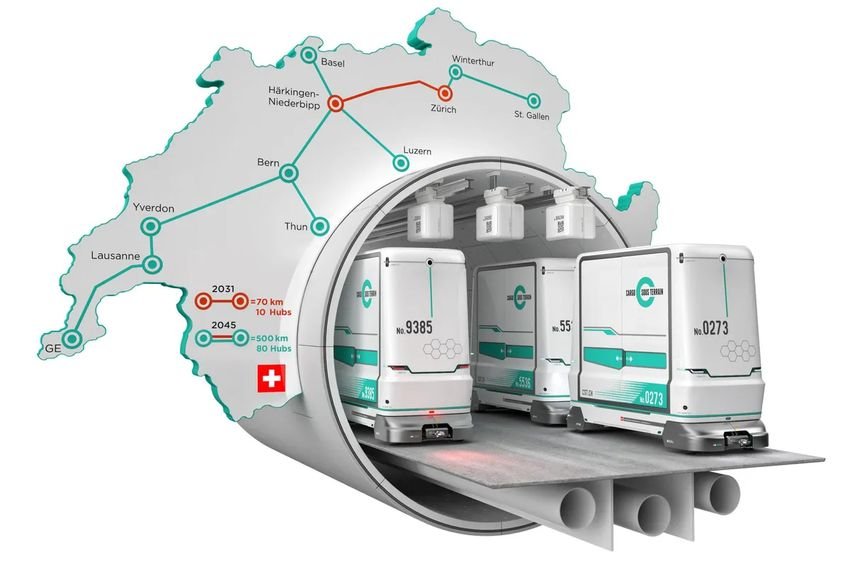Switzerland is moving forward with Cargo Sous Terrain, an autonomous underground tunnel system machineafter all deliveryς εμπορευμάτων από πόλη σε πόλη.

The Cargo Sous Terrain Idea was launched in 2016, and was then priced at US$3,4 billion. It envisioned underground tunnels filled with automated cargo delivery carts that would move at 30 kilometers per hour and will transport goods between cities and logistics centers throughout Switzerland.
The Cargo Sous Terrain will provide long-term freight, without relying on extension of the road and rail networks, which are already full, both with freight and passengers, and do not have much room for growth.
Like so many ideas of this kind, six years ago it seemed highly unlikely that it would ever happen. However, last December, the Swiss parliament approved the necessary legal framework to enable underground freight, meaning the CST project can start construction of the first tunnel on August 1.
Load transfer machines will follow a similar principle to that of an automatic transfer system. Automated, driverless vehicles will be able to pick up and drop off loads automatically from designated ramps and lifts and will be able to travel around the clock in the tunnels.
The vehicles, which are driven by wheels and will have electric drive through induction rails. Goods will be transported on pallets or in modified containers. Thanks to transport vehicles that will be compatible with refrigeration, it is also possible to transport fresh and preserved products simply chilled.
The tunnels will have three tracks, i.e. three traffic lanes. Attached to the roof of the tunnel is a faster overhead track for smaller packages of goods.
The continuous flow of small-sized goods will eliminate the need for waiting times at transfer stations. In addition, the storage space requirement can be massively reduced because temporary storage of goods is no longer necessary.
Freight transport has different requirements than passenger transport. Freight tunnels may be smaller, operate at lower speeds than passengers would require, and since the entire system is autonomous, comfort (and to some extent safety) may not be a primary objective.
The cost (to be borne entirely by the private sector) has risen from an initial 2016 estimate of $3,5 billion and is now estimated to cost between $30 and $35 billion for the full 500km network.
The Swiss seem mostly unfazed by the scale of the project and still see it as a good long-term investment. The entire project will run on renewable energy, and CST expects the amount of heavy trucks on the road to be reduced by up to 40 percent as its underground vehicles take over the transport.





